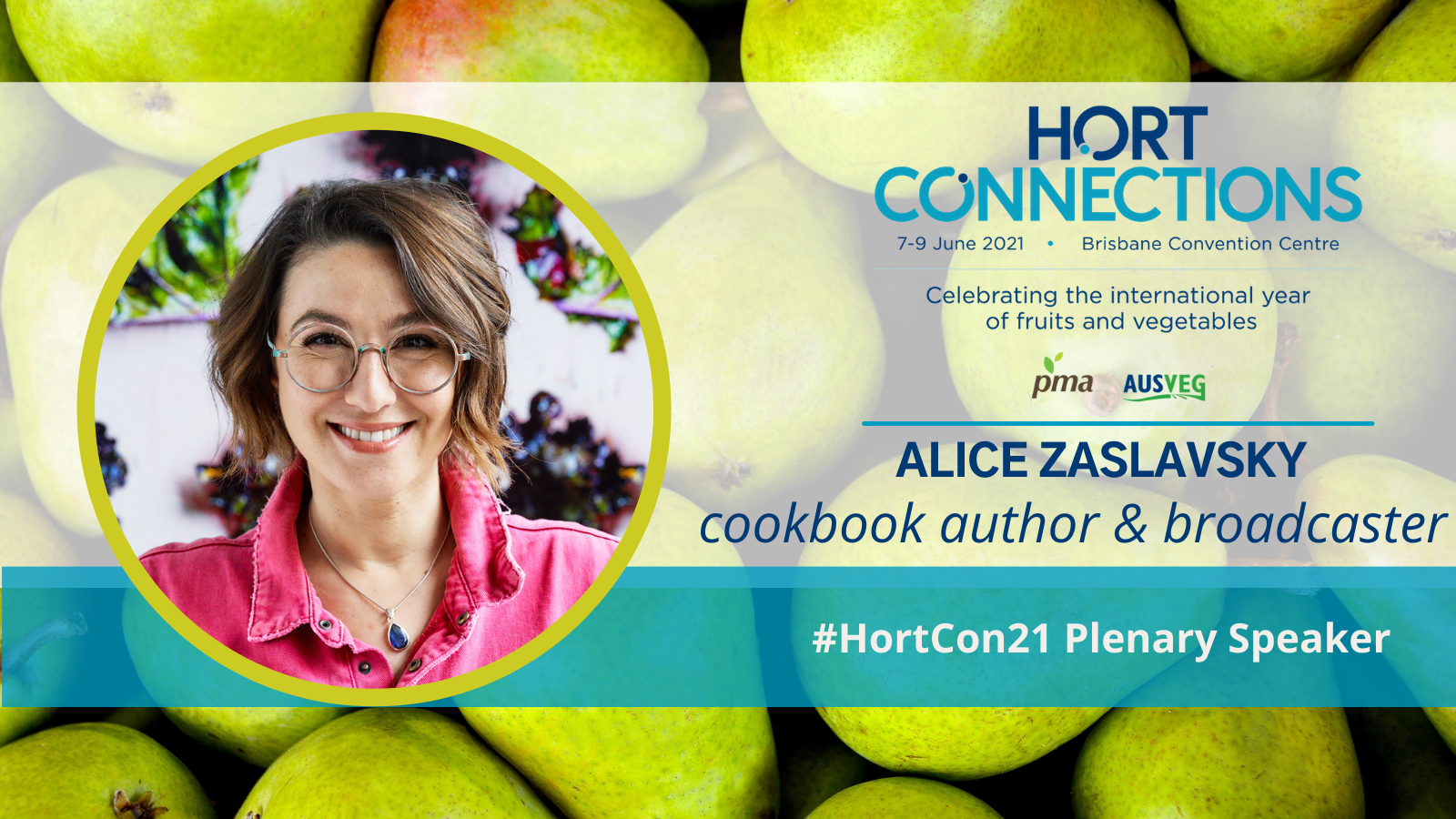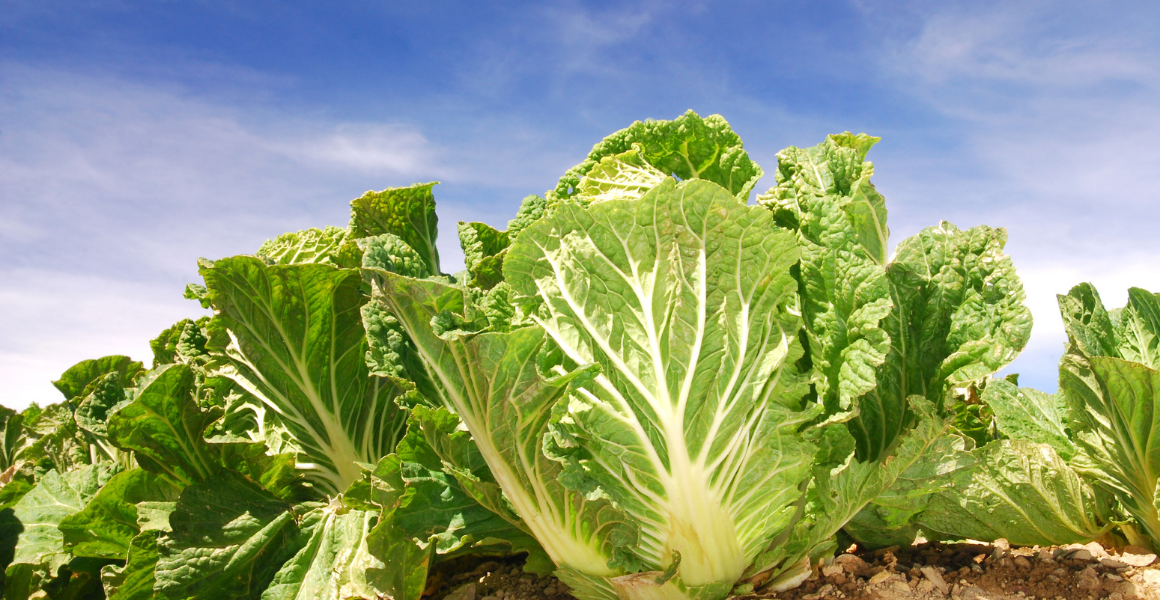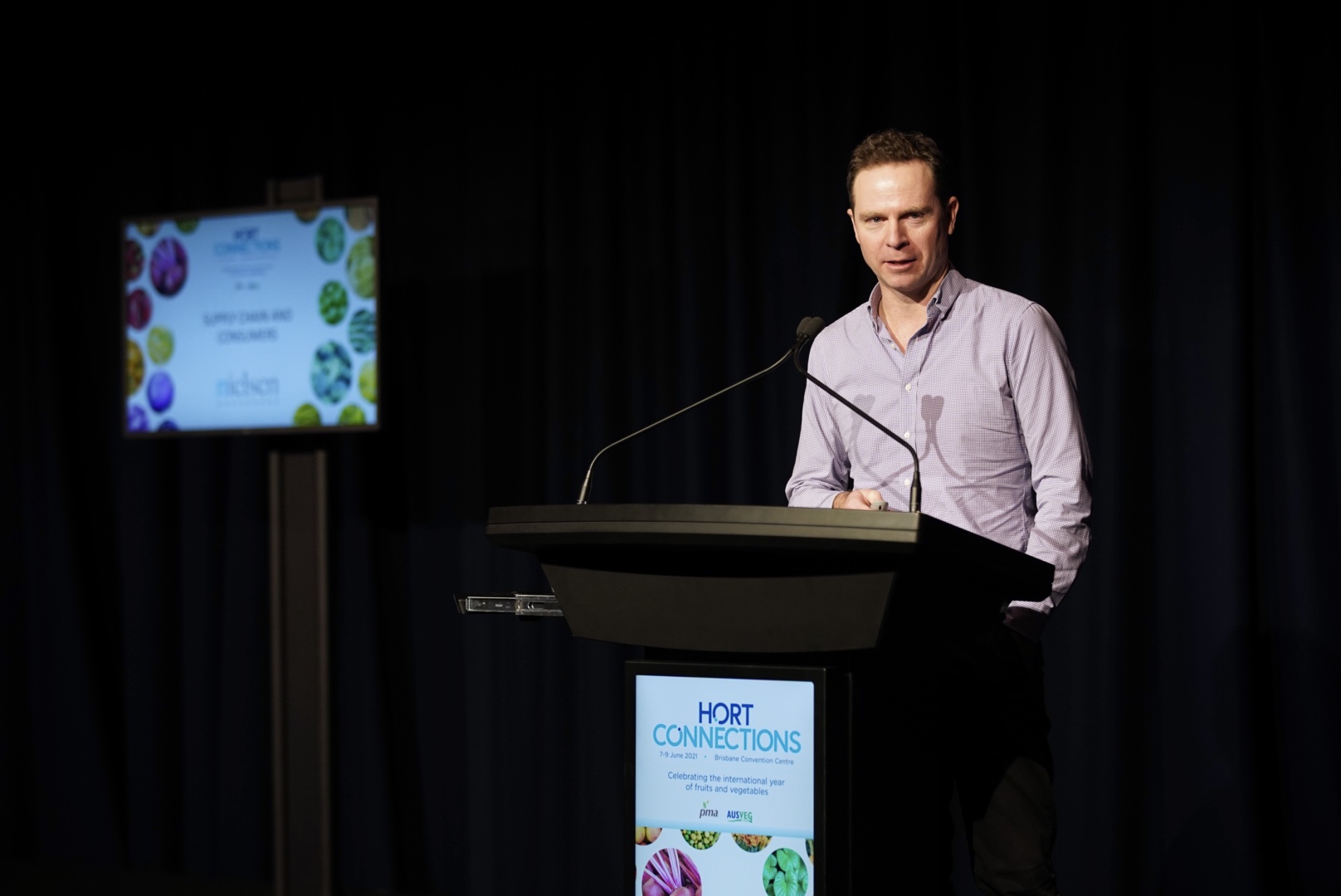
Putting veg first: Consumption in the spotlight
14 September 2021
Advancements in integrated crop protection for profitable veg production
14 September 2021Across two days, Hort Connections 2021 delegates were invited to participate in thought-provoking and interactive speaker sessions. One of these was hosted by Mark Turner (pictured above) – a Professor in Food Microbiology, University of Queensland – and he spoke about food safety, and how pathogen outbreaks can be minimised in pre- and post-harvest stages of vegetable production.
University of Queensland Professor Mark Turner took to the Hort Connections stage on Wednesday 9 June as part of the Supply Chain and Consumers Speaker Sessions, sponsored by Nielsen.
Mark is a Deputy Head of the School of Agriculture and Food Sciences at the University of Queensland and leads a research team in the area of food quality and safety. His session focused on fresh produce safety challenges and opportunities and covered the pathogens that are present in the farm environment to controls that minimise the risks of these outbreaks occurring.
Salmonella and listeria monocytogenes are pathogens of concern when it comes to food safety. Mark discussed outbreaks that have occurred in the United States and Australia, and he pointed to new technologies that are being used to identify the strains and where they originated.
Whole Genome Sequencing (WGS) investigates the entire DNA sequence to link cases and identify outbreaks. It was successfully used in a recent outbreak of salmonella in red onions in the U.S.A., the largest salad outbreak in over a decade affecting more than 1,600 people. WGS was used to trace the pathogen back to an operation where it was found in water and sediment samples that had likely come from grazing sheep in adjacent land. There had been cross-contamination in the processing and handling of the product.
While outbreaks are not as prevalent in Australia, listeria – a foodborne illness caused by the bacteria Listeria monocytogenes – has higher mortality rates than salmonella. Deaths occur in 20-30 per cent of listeria cases. Therefore, it is important that there are controls right along the supply chain to minimise the risk of foodborne illnesses such as listeria.
Pre-harvest and post-harvest controls
Mark outlined what can be done in the field prior to harvest taking place. Treating and testing water, keeping livestock away from the crop to avoid faecal contamination, avoiding wildlife intrusion and using good equipment and personal hygiene were among controls to prevent pathogen infection. The focus then shifted to post-harvest and pathogen persistence in processing environments. Mark pointed out that cross-contamination can occur during produce washing and time-temperature abuse (when produce is kept at a temperature for a dangerous amount of time, which can lead to pathogen growth) can also take place.
New technology is a weapon in the food safety space. In addition to WGS, big data and the Internet of Things are being used to mitigate risk. Drone data is looking at animal intrusion, weather patterns are being recorded and there are new biological sanitation methods that are being trialled with positive results.
The bottom line
Mark said there is no way to achieving zero risk of contamination – pathogens are present in the farm environment and tracing back outbreak sources can be difficult. However, there is significant research being undertaken and lessons learned about food safety practices and fostering awareness of the risks results in better controls measures throughout the supply chain.
Project reflection: Keeping vegetables healthy and safe
In 2016, the University of Queensland and Hort Innovation partnered to develop new biocontrol strategies to inhibit bacterial pathogen growth in ready-to-eat vegetables. The project was developing, verifying and ultimately making available new biological control agents (new strains/blends of beneficial bacteria) to inhibit the growth of harmful bacteria on vegetables.
The two-year project used the friendly lactic acid bacteria ‘Probisafe’ discovered at the University of Queensland and commercialised by Uniquest. The team’s main focus was investigating the consequences of adding these bacteria to bagged salad leaves to inhibit the growth of salmonella and listeria.
ProbiSafe – developing biocontrol agents to inhibit pathogen growth (VG16005) was a strategic levy investment under the Hort Innovation Vegetable Fund. More about this project can be found on the Hort Innovation website.
Find out more
Presentations from the Hort Connections speaker sessions are available to watch by clicking here.
You can watch Mark’s presentation at Hort Connections 2021 below:

